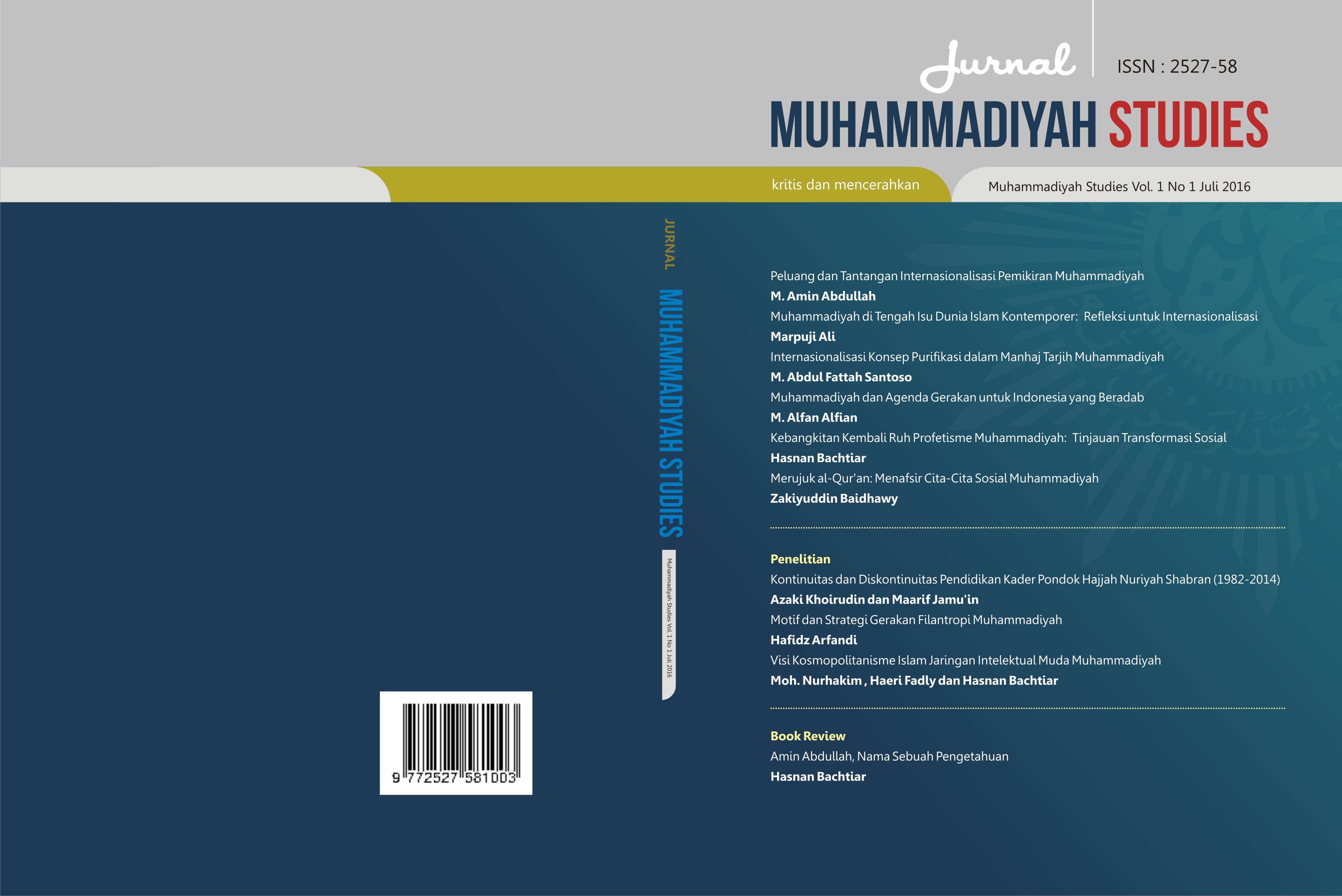Kontinuitas dan Diskontinuitas Pendidikan Kader Pondok Hajjah Nuriyah Shabran (1982-2014)
DOI:
https://doi.org/10.22219/jms.v1i1.11412Keywords:
Kontinuitas, Diskontinuitas, Pondok Shabran, dan Diaspora Peradaban MuhammadiyahAbstract
Penelitian ini akan membahas masalah kontinuitas dan diskontinuitas paradigma pendidikan kader Pondok Pesantren Hajjah Nuriyah Shabran (1982-2014), dan kaitannya dengan diaspora peradaban Muhammadiyah. Tulisan ini mengamati transformasi dan pergeseran orientasi paradigma pendidikan kader Pondok Shabran pasca kepemimpinan Djazman al-Kindi, hubungan elit (kekuasaan) dalam pembentukan pandangan paradigma pendidikan, dan kontinuitas dan diskontinuitasnya. Landasan teori tulisan ini adalah teori diaspora, kontinuitas, serta diskontinuitas. Melalui Pondok Shabran, kader-kader Persyarikatan mampu melakukan diaspora peradaban dalam rangka membenihkan perubahan sosial.Downloads
Download data is not yet available.
Downloads
Published
2016-07-27
How to Cite
Khoirudin, A., & Jamuin, M. (2016). Kontinuitas dan Diskontinuitas Pendidikan Kader Pondok Hajjah Nuriyah Shabran (1982-2014). Jurnal Muhammadiyah Studies, 1(1), 106–126. https://doi.org/10.22219/jms.v1i1.11412
Issue
Section
Articles
License
Copyright Notice
Authors who publish with Jurnal Muhammadiyah Studies agree to the following terms:
- For all articles published in the Jurnal Muhammadiyah Studies, copyright is retained by the authors. Authors give permission to the publisher to announce the work with conditions. When the manuscript is accepted for publication, the authors agree to the automatic transfer of the publishing right to the publisher.
- Authors retain copyright and grant the journal the right of first publication with the work simultaneously licensed under a Creative Commons Attribution 4.0 International License. that allows others to share the work with an acknowledgment of the work's authorship and initial publication in this journal.
- Authors are able to enter into separate, additional contractual arrangements for the non-exclusive distribution of the journal's published version of the work (e.g., post it to an institutional repository or publish it in a book), with an acknowledgment of its initial publication in this journal.
- Authors are permitted and encouraged to post their work online (e.g., in institutional repositories or on their website) prior to and during the submission process, as it can lead to productive exchanges, as well as earlier and greater citation of published work (See The Effect of Open Access).




